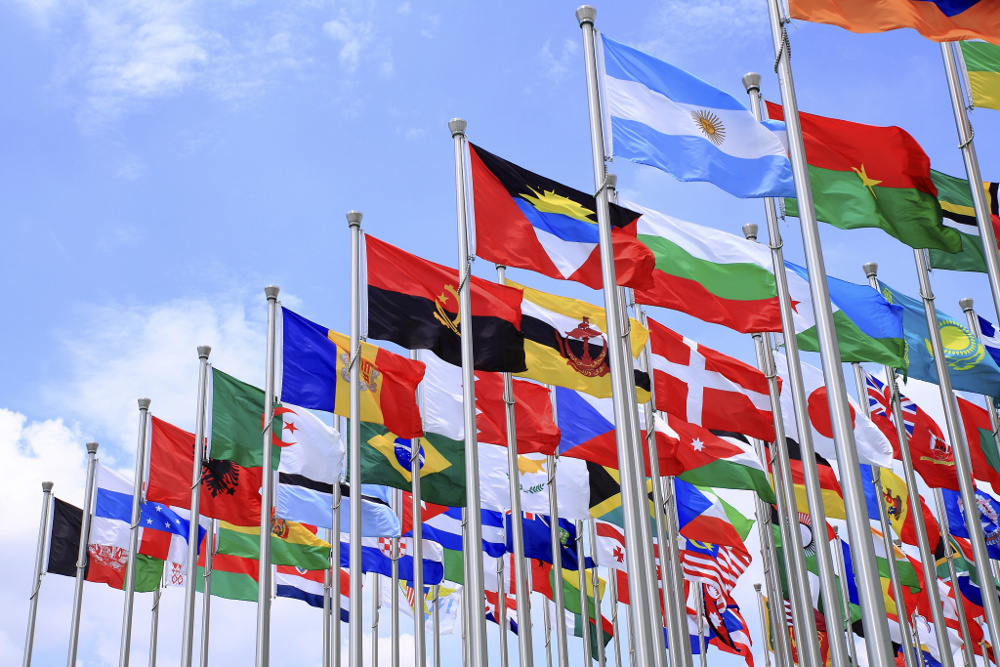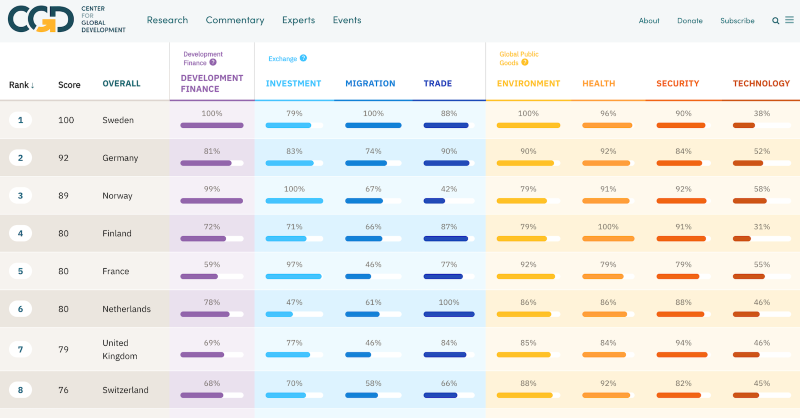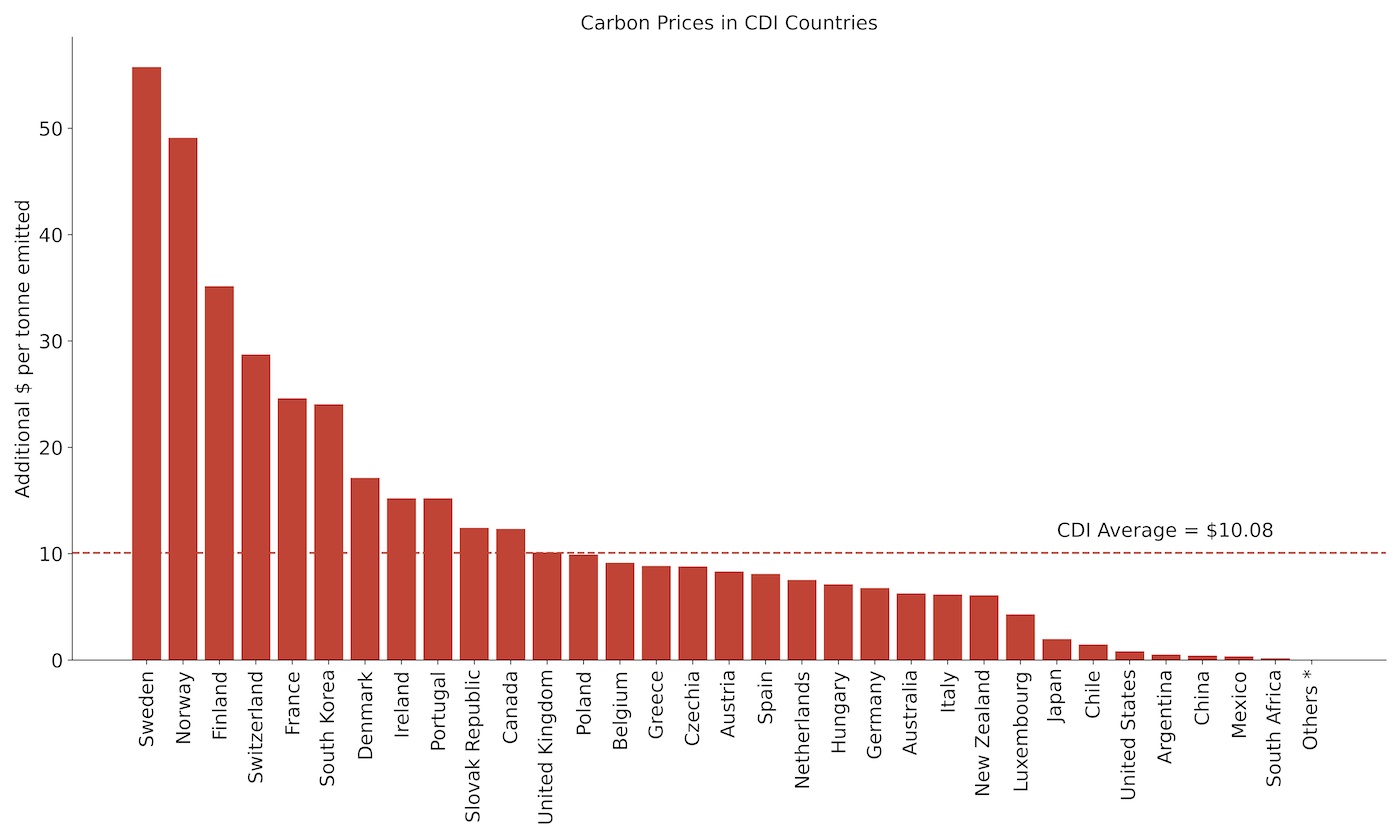Why did a U.N. official’s remark soon after the tsunami hit that rich countries are “stingy” stir such a furor in the U.S.? We are a thick-skinned people, inventors of “Crossfire” and the NFL, led by a president who takes pride in disregarding foreign opinion. Yet even though Jan Egeland, the U.N. point person for disaster relief, did not single out the U.S., his words hit a raw nerve.
Secretary of State Collin Powell, USAID administrator Andrew Natsios, and President Bush himself rallied to the defense of American generosity. The outraged Wall Street Journal said, “Mr. Egeland is simply wrong.” Carol Adelman, a former USAID official, pointed out in the New York Times that the U.S. gives more in absolute terms than any other country.
But an honest survey of how America and its government affect poorer nations gives plenty of cause for shame—and a few sources of pride. When it comes to foreign aid, for example, we are in fact stingy. True, America provides more official aid than any other country. But the $16 billion in aid the U.S. government gave in 2003 works out to just 15¢ per American per day. Compare that to 29¢ for the United Kingdom, 33¢ for France, and $1.23 for Norway. Americans give more through church groups, the Red Cross, and other charities, but that amounts to just another six cents a day, and does not close the gap with other rich countries.
Largely forgotten in the heated debate has been that foreign aid is just one channel linking us with poorer countries. For example, the relative openness of the United States to toys, cameras, and cars facilitated rapid industrialization and poverty decline in China, and before that South Korea, and before that Japan. Americans take pride in that. On the Commitment to Development Index, a ranking maintained by the Center for Global Development and Foreign Policy magazine that covers seven policy areas, the U.S. ranks tops on trade policy among 21 rich countries.
But the U.S. does maintain significant barriers. In fact in 2004, it collected $1.8 billion from tariffs—taxes—imposed on imported clothing and other goods from India, Indonesia, Sri Lanka, and Thailand, five times what it promised those tsunami-hit countries in emergency aid. Nevertheless, the U.S. is more open than Europe or Japan.
The United States also does well, at least compared to its peers, on migration. It is relatively easy for someone from El Salvador, Mexico, or Somalia to the come to the United States, get a job, and send home money—or get training and return home with skills and entrepreneurial energy. Immigrants remitted $32 billion to Latin America and the Caribbean in 2002, six times what the region received in foreign aid. The index ranks the U.S. second on immigration, ahead of Australia and behind Canada, two other nations of migrants.
But in other ways, the United States is less exemplary. With its low gas taxes and sprawling suburbs, the country is a major contributor to global warming. And as the tsunami should remind us, poor countries are most vulnerable to the ravages of nature. Global warming could inundate large sections of low-lying Bangladesh, forcing millions of poor farmers off their land. For a really generous response to the problem of inundations in the Indian Ocean, Americans could climb out of their SUVs.
The U.S. global military reach is another essential aspect of our international profile. Evaluating the impact of these activities on poor people in developing countries is tough and controversial. In the Commitment to Development Index, we give credit for military activities that are endorsed by an international body, such as the UN or the NATO Council. For its size, the United States makes only average contributions to such operations.
Combining all this information with scores for investment and technology policy, the U.S. ties Germany, Norway, and France for seventh place for overall support for development. That makes the U.S. above-average among the 21 donor countries, but hardly commensurate with the boast that we are the most generous nation on earth.
The details of the scoring can be debated. But the lesson is clear: the U.S. could do much more to support the efforts of poor people in developing countries to improve their lives. Congress could slash tariffs on crops and clothing from developing countries. President Bush could invest political capital in proposals he floated a year ago to legalize millions of undocumented immigrant workers who are contributing to this country’s economic strength—and supporting families in their old homes. The outpouring of generosity since the tsunami and the furor over Egeland’s remarks show that Americans believe they should be generous. It’s time we held our government to the high expectations we hold for ourselves.
David Roodman, a Research Fellow at the Center for Global Development, oversees the preparation of the Commitment to Development Index, a collaboration with Foreign Policy magazine
Disclaimer
CGD blog posts reflect the views of the authors, drawing on prior research and experience in their areas of expertise. CGD is a nonpartisan, independent organization and does not take institutional positions.





